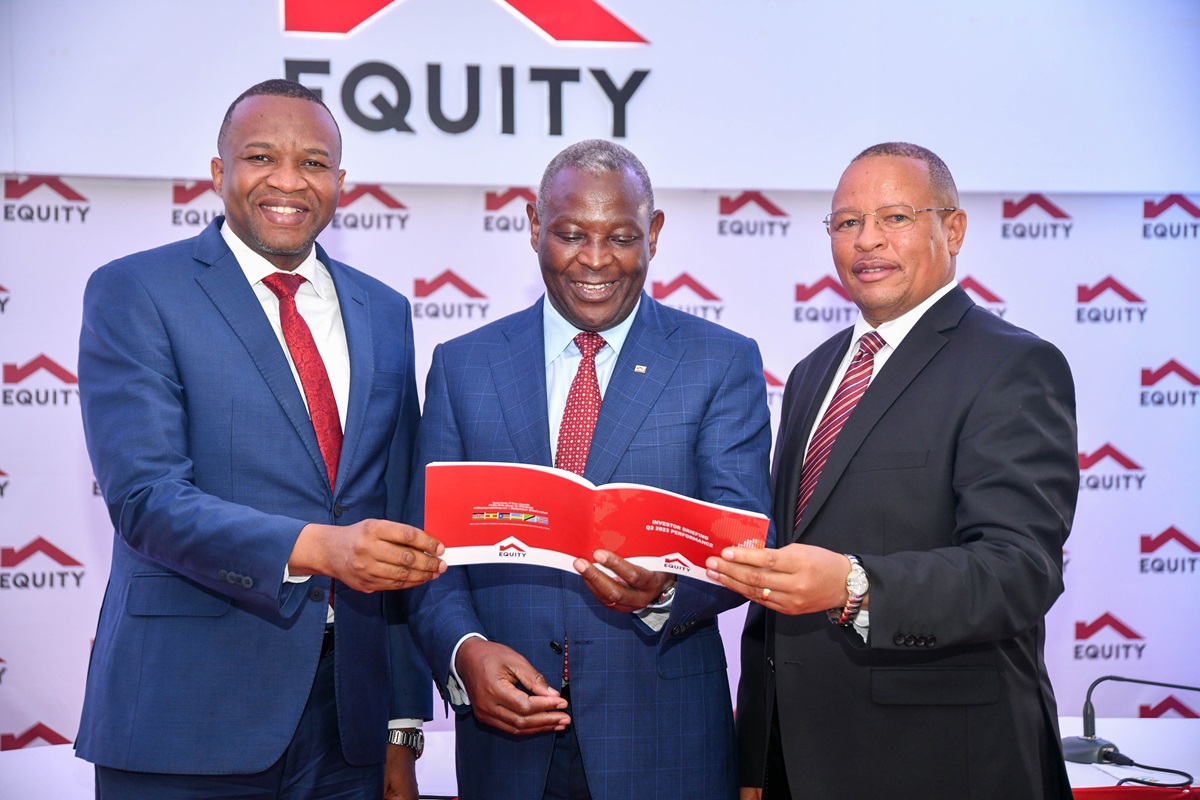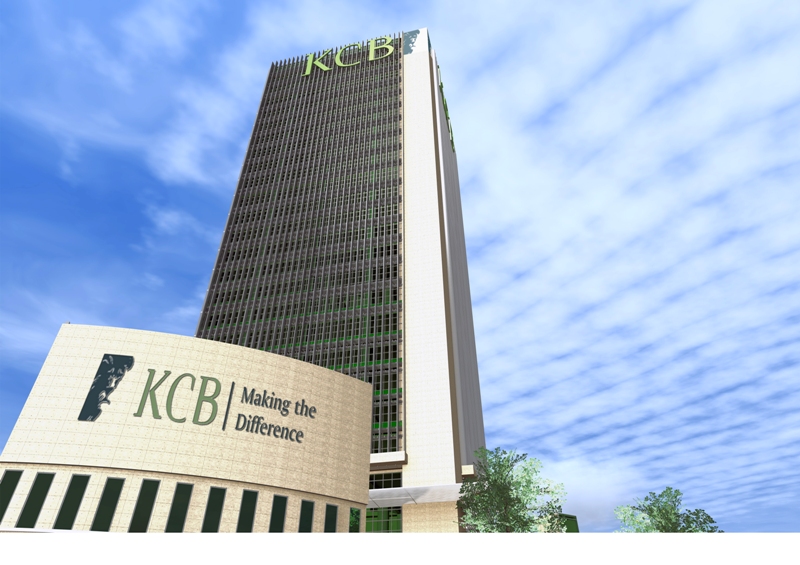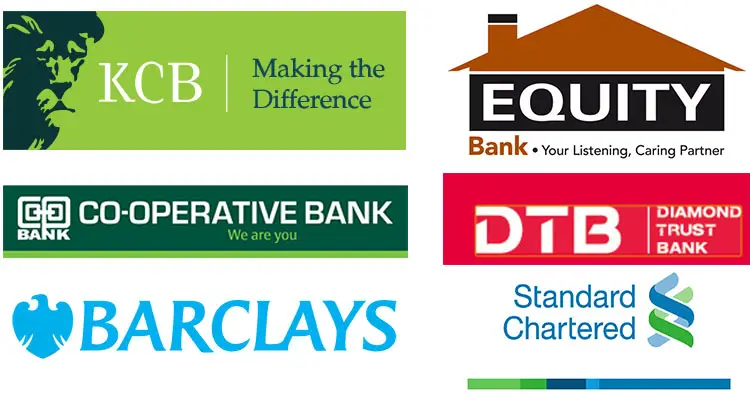Business & Money
Equity Group Holdings Shows Strong Recovery with 25% Profit Growth in Q1 2024
Driving the bank’s recovery is a bold move to optimize financial performance. Equity Group focused on boosting deposits, achieving an 11% increase, while strategically cutting back on costly deposit placements. Simultaneously, the bank reduced long-term borrowed funds by 21% through retiring high-cost dollar-denominated loans, significantly enhancing cost efficiency.

: Equity Group Holdings Surges Ahead in Q1 2024 with Resilience and Strategic Agility, Setting the Pace in East Africa’s Financial Services Sector
By Charles Wachira
Equity Group Holdings has bounced back impressively in the first quarter of 2024, reporting a 25% increase in profit after tax to Kshs 16 billion (US$123,851,392) compared to last year. This turnaround follows a recent 5% decline in earnings for the year ending December 31, 2023. The resurgence can be attributed to decisive leadership and a strategic approach to managing its balance sheet.
Strategic Decisions Driving Growth
Underpinning the bank’s recovery is a bold decision to optimise its financial performance. Equity Group prioritised deposit growth, achieving an 11% increase while strategically reducing expensive deposit placements. Concurrently, the bank managed a 21% decline in long-term borrowed funds by retiring high-cost dollar-denominated loans, improving overall cost efficiencies.
Enhanced Risk Management and Loan Portfolio Growth
Equity Group strengthened its credit risk underwriting to mitigate elevated credit risks amidst a challenging economic environment, resulting in a moderate 3% year-on-year growth in the loan book as of March 31, 2024. Notably, the bank shifted focus from private-sector lending to government securities, comprising 21% of its lending portfolio. This strategic pivot contributed to a reduced cost of credit risk, declining to 2.9% from 4.4% in December 2023.
Financial Performance and Operational Efficiency
Equity Group’s disciplined cost management strategies led to a notable improvement in operational efficiency. Total costs grew by 28% in the first quarter of 2024, a significant reduction from the 52% growth observed in the previous year. This efficiency drive resulted in a lowered cost-to-income ratio of 47.1% compared to 52.3% in December 2023.
Strategic Expansion and Market Positioning
Equity Group maintained a robust 52.1% liquidity position despite fluctuations in the world economy, bolstered by a balance sheet totalling Kshs 1.69 trillion (US$13,081,803,280).
In addition, the bank has a strong liability franchise, supported by 20 million deposit customers and diverse funding sources. This remains a cornerstone of its operational resilience and growth strategy.
Future Outlook and Strategic Focus
Equity Group remains committed to navigating macroeconomic uncertainties and leveraging its regional footprint to drive sustainable growth. The bank’s emphasis on digital innovation, customer-centricity, and expanding its non-funded income streams positions it well to capitalise on emerging opportunities in financial services across East Africa.
In conclusion, Equity Group Holdings’ strong performance in Q1 2024 reflects its adaptive resilience and strategic agility in a volatile economic landscape. With a solid foundation of strong governance, robust risk management practices, and a diversified business model, the Group is poised to sustain momentum and deliver value to its stakeholders in the evolving financial services sector.
Keywords:Equity Group Q1 2024 Profit Growth:Strategic Financial Optimization at Equity Group:Loan Portfolio and Risk Management Strategy:Operational Efficiency and Cost Reduction:Future Outlook and Market Positioning in East Africa
Business & Money
KCB Group Surpasses Equity with US$ 342.31 Million Nine-Month Profit

: KCB Group reports Sh44.5B ( US$ 342.31) nine-month profit, outpacing
Equity Bank. Learn about its 49% growth, challenges, and stock performance this
year.
KCB Group Plc has outperformed Equity Bank to cement its position as Kenya’s leading
lender, posting a net profit of Sh44.5 billion for the nine months ending September
This represents a 49% year-on-year growth, surpassing Equity Bank’s Sh37.5
billion profit during the same period.
Profit Growth Driven by Core Business Performance
The remarkable profit growth was fueled by higher earnings from both interest and non-
interest income streams. KCB’s diverse revenue base has been pivotal in maintaining
its dominance in the competitive banking sector.
Non-Performing Loans a Key Concern
Despite the impressive profit growth, KCB’s non-performing loan (NPL) ratio rose to
18.5%, compared to 16.5% last year. This increase highlights persistent challenges in
managing credit risk, with Chief Financial Officer Lawrence Kimathi acknowledging it as
a “pain point” for the bank.
KCB Stock Outshines Peers on NSE
KCB’s strong financial performance has translated into exceptional stock market results.
The bank’s stock has risen 78.8% year-to-date, making it the best-performing banking
stock on the Nairobi Securities Exchange (NSE).
Plans to Sell National Bank of Kenya
Earlier this year, KCB announced plans to sell its struggling subsidiary, National Bank of
Kenya (NBK), to Nigeria’s Access Bank. While Nigerian regulators have approved the
deal, it is still awaiting clearance from Kenya’s Central Bank. The sale aims to
streamline KCB’s operations and address losses at NBK.
CEO Paul Russo Optimistic About Year-End Performance
“The journey has not been without its hurdles, but our ability to walk alongside our
customers has driven our success,” said KCB CEO Paul Russo. He expressed
confidence in closing the year on a high note, leveraging improving economic conditions
across the region.
Key Figures at a Glance
● Net Profit: Sh44.5 billion (+49%)
● Non-Performing Loan Ratio: 18.5% (up from 16.5%)
● Stock Performance: +78.8% year-to-date
KCB’s strong performance underscores its resilience in navigating challenges and its
commitment to sustaining growth in Kenya’s banking sector.
Business & Money
Top 10 Kenyan banks by total assets as of 2023, based on data from the Central Bank of Kenya:

KCB Bank Kenya Limited
Total Assets: KSh 1.425 trillion
Market Share: 17.4%
Equity Bank Kenya Limited
Total Assets: KSh 1.004 trillion
Market Share: 12.2%
NCBA Bank Kenya PLC
Total Assets: KSh 661.7 billion
Market Share: 9.2%
Co-operative Bank of Kenya
Total Assets: KSh 624.3 billion
Market Share: 8.8%
Absa Bank Kenya PLC
Total Assets: KSh 520.3 billion
Market Share: 6.6%
Standard Chartered Bank Kenya
Total Assets: KSh 429.3 billion
Market Share: 5.9%
Stanbic Bank Kenya
Total Assets: KSh 449.6 billion
Market Share: 5.8%
I&M Bank Limited
Total Assets: KSh 405.6 billion
Market Share: 5.4%
Diamond Trust Bank Kenya
Total Assets: KSh 399.6 billion
Market Share: 5.3%
Bank of Baroda (Kenya) Limited
Total Assets: KSh 201.9 billion
Market Share: 2.8%
These rankings illustrate the dominance of large Tier 1 banks, which collectively control over
76% of the market share. Strategic expansions, increased deposit mobilisation, and robust
lending practices underpin the sector’s strong performance
Business & Money
Vasundhara Oswal’s Legal Struggles and Family’s Plea for Justice

: Vasundhara Oswal, daughter of industrialist Pankaj Oswal, faces serious
charges in Uganda. The Oswals call for UN intervention amid claims of corporate
jealousy.
Vasundhara Oswal, the 26-year-old daughter of prominent Swiss-Indian industrialist
Pankaj Oswal, has found herself at the centre of a legal storm in Uganda.
Her father, a well-established business figure, is known for his diverse investments,
most notably a $150 million ethanol plant in Uganda.
This plant, the largest of its kind in East Africa, is a key part of Oswal’s broader strategy
to invest in industrial and eco-friendly solutions in the region. The facility produces extra-neutral alcohol (ENA), which is used in the beverage, cosmetics, and pharmaceutical industries.
It is recognised for its modern technology and sustainable practices, such as zero liquid
discharge, emphasising the Oswal family’s commitment to both industrial growth and
environmental responsibility.
In addition to the ethanol plant, Pankaj Oswal has made strategic investments across
various industries, including petrochemicals, agriculture, and real estate.
His ventures reflect a global reach, extending to Australia and India, where he has
been involved in industries ranging from agriculture to renewable energy.
His diversified business approach and commitment to sustainability have made him a prominent figure in international business. However, in October 2024, the family’s legacy was overshadowed by the legal troubles surrounding Vasundhara Oswal.
She was detained on October 1, 2024, after being accused of involvement in the
alleged murder of Mukesh Menaria, a former employee who had worked with the
Oswals since 2017.
Menaria had accused the family of harassment but later testified under oath that they
had not harmed him Despite this, charges of kidnapping and murder were brought against Vasundhara.
Her family has strongly denied these allegations, claiming that the charges are
politically motivated and part of a larger conspiracy orchestrated by their business rivals
in collaboration with corrupt officials in Uganda.
The Oswals have appealed to the United Nations, seeking intervention and asserting
that the legal proceedings against Vasundhara are unlawful. Vasundhara has actively managed the family business throughout her career, especially the ethanol plant, and led the company’s sustainable initiatives.
Beyond her business involvement, she has also been an advocate for community
welfare and mental health, further cementing the Oswal family’s reputation for corporate
social responsibility.
The unfolding legal drama has raised important questions about the intersection of
business, politics, and the legal systems in Uganda.
While the Oswal family’s ventures reflect a blend of industrial innovation and social
responsibility, the legal challenges Vasundhara faces have cast a shadow over their
business empire, highlighting the complex dynamics at play in East Africa.
-

 Business & Money8 months ago
Business & Money8 months agoEquity Group Announces Kshs 15.1 Billion Dividend Amid Strong Performance
-

 Politics3 months ago
Politics3 months agoFred Okengo Matiang’i vs. President William Ruto: A 2027 Election Showdown
-

 Politics2 months ago
Politics2 months agoIchung’wah Faces Mt. Kenya Backlash Over Gachagua Impeachment Support
-

 Politics4 months ago
Politics4 months agoPresident Ruto’s Bold Cabinet Dismissal Sparks Hope for Change
-

 Politics5 months ago
Politics5 months agoKenya Grapples with Investor Confidence Crisis Amid Tax Protest Fallout
-

 Politics5 months ago
Politics5 months agoPresident Ruto’s Lavish Spending Amid Kenya’s Economic Struggles Sparks Outrage
-

 Politics4 months ago
Politics4 months agoJohn Mbadi Takes Over Kenya’s Treasury: Challenges Ahead
-

 Business & Money1 week ago
Business & Money1 week agoMeet Kariuki Ngari: Standard Chartered Bank’s new CEO of Africa. What’s Next?





